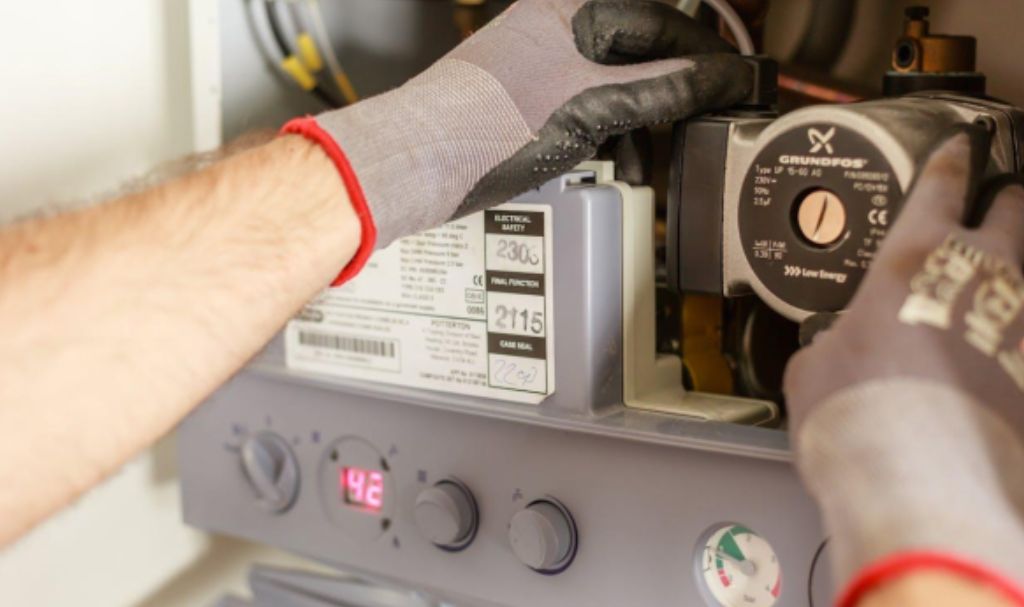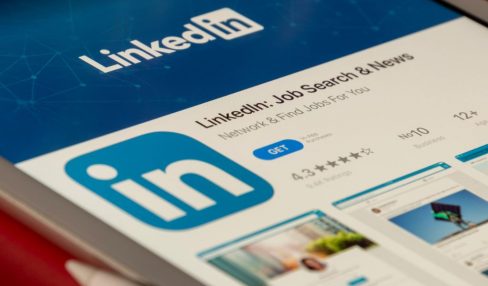Ensuring Comfort and Efficiency: The Essential Guide to HVAC Maintenance for Landlords
5 Mins Read
Published on: 30 April 2025
Last Updated on: 05 May 2025

- HVAC Maintenance for Landlords: Complete Maintenance Checklist
- 1. Change Air Filters Regularly
- 2. Clean Coils and Condensers
- 3. Schedule Professional Inspections and Tune-ups
- 4. Inspect and Seal Ductwork
- 5. Check and Clear Drain Lines
- How to Communicate HVAC Maintenance Expectations with Your Tenants
- 1. Be Transparent About Responsibilities
- 2. Educate Your Tenants
- 3. Stay Proactive in Communication
- Conclusion
When you’re in the commercial or residential property business, you’ll have to juggle responsibilities you hardly ever thought would emerge.
From being a responsible and emotionally supporting landlord to providing technical help like plumbing and maintaining HVAC systems, today’s landlords are all-arounders. HVAC Maintenance for Landlords renting out their properties for residential use isn’t easy.
It’s best not to avoid HVAC maintenance schedules if you don’t want to have to deal with tenants’ grievances during uncomfortable hours.
Providing a well-maintained HVAC (heating, ventilation, and air conditioning) system is just as important since the tenant’s comfort is of utmost importance.
Read the following article if you want to stay on top of your tenants’ requirements with HVAC systems and their comfort.
HVAC Maintenance for Landlords: Complete Maintenance Checklist
Following a thorough HVAC preventative maintenance checklist can help extend the life of your system and ensure optimal performance throughout the year. Here are some proactive steps that will help maintain the well-being of your HVAC system:
1. Change Air Filters Regularly
Air filters trap dust, dirt, and allergens, keeping the air clean while improving HVAC efficiency. These filters must be replaced every one to three months, as otherwise, they become clogged. Make it a habit to check filters every month.
Tenants will benefit from great indoor air quality, while system energy consumption will be greatly reduced. The results of these maintenance procedures are unobstructed HVAC operations and decreased risk of expensive repairs.
2. Clean Coils and Condensers
HVAC coils and condensers are crucial parts of the HVAC system due to their role in transferring heat. It’s not just important to think of HVAC maintenance for landlords, it’s mandatory.
Over time and extensive use, HVAC systems get dirty, impeding the performance of the coils and the ducts in the process.
It can cause the HVAC system to use more power to maintain a specific temperature than it should. The coil tires are in the process and require replacement.
3. Schedule Professional Inspections and Tune-ups
An HVAC system may not seem difficult for some landlords to maintain on their own (given that they are experts at it). However, it’s always best to resort to professional help and implement a process for seasonal inspection.
This will help minimize the chances for smaller issues to grow over time and affect the HVAC performance.
Technicians, as part of the routine maintenance, check for leaks, expired warranties, and the quantity of refrigerants available. Spending money on professional maintenance allows you to increase system efficiency while prolonging its lifespan, reducing investment risks, and maintaining tenant happiness all year round.
4. Inspect and Seal Ductwork
It becomes easier to carry out HVAC maintenance for landlords when the ductwork is inspected from time to time. Ductwork is important for circulating hot and cold air throughout your property. Over time, the ducts tend to develop gaps or leaks, which makes HVAC systems work inefficiently.
Check the ductwork at least once every year for cracks, loose connections, and any visual gaps. Metal tape, in this case, is more cost-effective and gives superior results compared to duct sealant. Sealing duct leaks makes the system perform better and cuts down energy costs significantly, which is good for you and your tenants.
5. Check and Clear Drain Lines
All HVAC systems come with a set of drain lines that help get rid of excess water and moisture in the system. Obstruction of these lines with dirt, algae, or even mold can cause water to accumulate and potentially damage the HVAC system or the entire property.
Clear and unblock the drain lines on a regular basis. Use a wet or dry vacuum or a vinegar solution to flush blockages. This improves the efficiency of the drain lines and eliminates the chances of costly water damage.
Keep in mind that keeping up with these requirements yourself can be difficult, which is why many recommend contacting a property manager. Investing in Northern Virginia property management can help streamline your operations and improve tenant retention rates.
How to Communicate HVAC Maintenance Expectations with Your Tenants

Effective communication is one of the many skills you need to succeed as a real estate investor.
Which is why clearly defining and communicating maintenance responsibilities to tenants minimizes tenant frustration and ensures smoother operations.
Here’s how to communicate the crucial expectations clearly:
1. Be Transparent About Responsibilities
A landlord should define what the various responsibilities are for all parties involved. As the landlord, you will need to arrange for professional maintenance and repairs, but your tenants will handle the DIY tasks, such as changing the air filters.
Make sure to include such details in the lease agreement so that there are no disputes.
2. Educate Your Tenants
If a tenant is unfamiliar with HVAC systems, consider educating them. This makes HVAC maintenance for landlords easier since the tenants themselves start to take responsibility for their own maintenance. Empower them with the skills to replace air filters and identify signs of faults.
You may also give them an informative pamphlet or, better yet, show them around during orientation. A tenant with basic knowledge is bound to inform you at the right time and help prevent problems from worsening.
3. Stay Proactive in Communication
Make it a point not to wait until tenants come to you with HVAC issues. Set reminders to check how the system is running and check in periodically.
You can also notify them beforehand of maintenance visits to minimize surprise. Proactive communication is a mark of trust and shows a commitment to maintaining their home.
Conclusion
As a rental property owner, it’s your responsibility to manage the requirements of your tenants. It can range from improving their overall experience within the property to solving their requirements regarding amenities.
That’s why HVAC maintenance for landlords becomes a crucial part of enhancing tenant comfort within the property.
It’s important to keep a proper checking and maintenance schedule and take consistent actions throughout the tenant’s stay in the property.
Ensure to stay aligned with practices like timely changing of filters, cleaning coils, and sealing open ducts of the HVAC system. Afterall, a better landlord-tenant relationship can result from proper management of the property and service to the tenants.



















Comments Are Closed For This Article